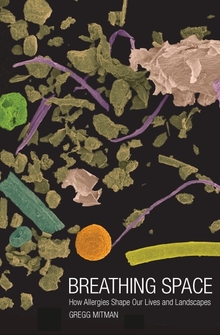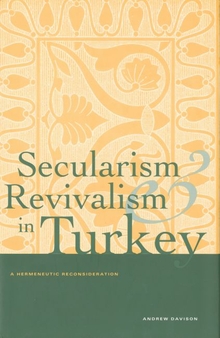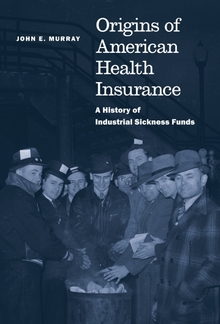Breathing Space
WARNING
You are viewing an older version of the Yalebooks website. Please visit out new website with more updated information and a better user experience: https://www.yalebooks.com
How Allergies Shape Our Lives and Landscapes
Gregg Mitman
Allergy is the sixth leading cause of chronic illness in the United States. More than fifty million Americans suffer from allergies, and they spend an estimated $18 billion coping with them. Yet despite advances in biomedicine and enormous investment in research over the past fifty years, the burden of allergic disease continues to grow. Why have we failed to reverse this trend?
Breathing Space offers an intimate portrait of how allergic disease has shaped American culture, landscape, and life. Drawing on environmental, medical, and cultural history and the life stories of people, plants, and insects, Mitman traces how America’s changing environment from the late 1800s to the present day has led to the epidemic growth of allergic disease. We have seen a never-ending stream of solutions to combat allergies, from hay fever resorts, herbicides, and air-conditioned homes to numerous potions and pills. But, as Mitman shows, despite the quest for a magic bullet, none of the attempted solutions has succeeded. Until we address how our changing environment—physical, biological, social, and economic—has helped to create America’s allergic landscape, that hoped-for success will continue to elude us.
Listen to Mitman's recent interview on The Diane Rehm Show on WAMU 88.5 FM, American University Radio.
Download The Journal of American Medical Association's recent review of Breathing Space and coverage from The New England Journal of Medicine.
“Gregg Mitman’s Breathing Space offers a critically important analysis of the emergence of allergies as strikingly common and increasingly serious health maladies. But it does much more: by systematically linking environmental and medical history, Mitman offers a powerful argument against biomedical reductionism. In this pathbreaking book, he vividly shows how our bodies, our environment, and our health are indivisible.”—Allan M. Brandt, Kass Professor of the History of Medicine, Harvard University
“Mitman directs steely, twenty-twenty insight at popular misapprehensions, past and present, of the causes and cures of allergies, hay fever and asthma, in particular. . . . Full of the wisdom of lessons learned as well as of noted authorities, Mitman’s thoughtful presentation is nothing to sneeze at.”—Booklist
"This is a suprisingly good read. . . . Gregg Mitman has turned out a very informative and helpful book for anyone interested in health and the environment. . . . Mr. Mitman engages the reader right from the outset. This well-written book provides a rational scientific basis for the explosion of allergic diseases in the past 150 years and how society has adapted with the times. . . . The book provides a rich and interesting history of allergic diseases in the U.S. and the role that we have all played in its evolution. It will be of interest to health care workers and allergy patients alike."—William J. Martin II, EcoHealth
Publication Date: August 5, 2008
48 b/w illus







